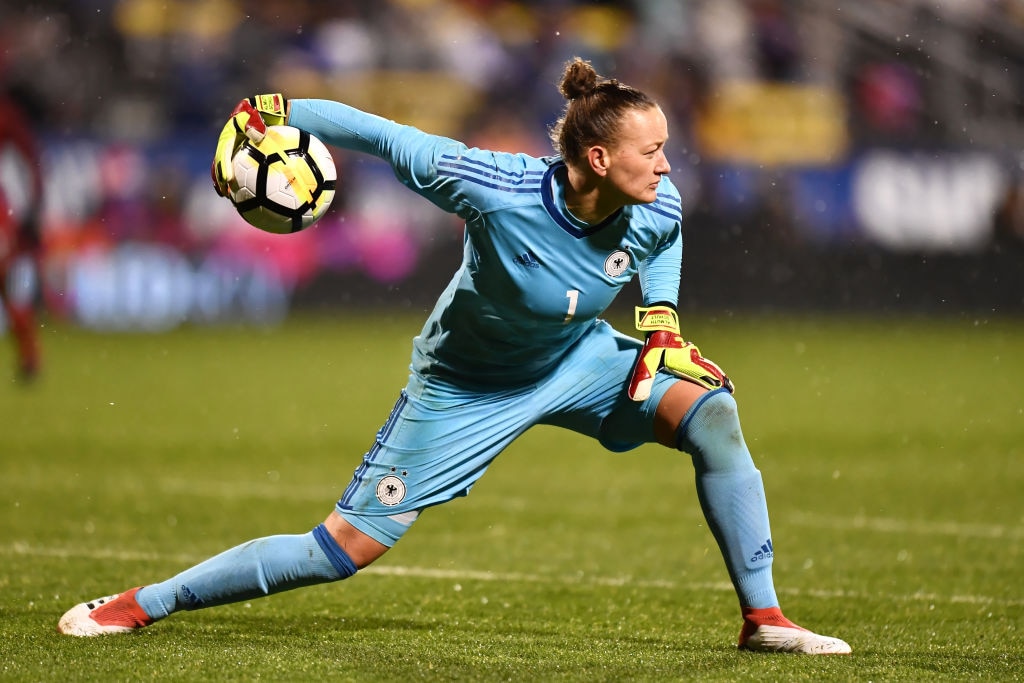Germany's viral women's football ad has inspired girls in Australia
'Fussball' is an ever-uniting force in Germany. Indeed, when it comes to the world game, Germans have had a lot to cheer about, historically.
Germany's viral women's football ad has inspired girls in Australia
'Fussball' is an ever-uniting force in Germany. Indeed, when it comes to the world game, Germans have had a lot to cheer about, historically.
Germany's viral women's football ad has inspired girls in Australia
BY DARREN MARA
'Fussball' is an ever-uniting force in Germany. Indeed, when it comes to the world game, Germans have had a lot to cheer about, historically.
But while the World Cup exploits of the men's team have been well-documented, the women’s travails much less so.
Ask any football fan about the German women’s team and it’s likely few would know they hold eight European titles, two world cup crowns and are reigning Olympic champions. They enter the Women's World Cup in June ranked second in the world.
Despite their successes on the global stage, the women say they still face prejudice, stereotyping and inequality at home, as evidenced by a social media video the team released when it was announcing its World Cup squad recently.
The video has gained huge traction online for its strong message of female empowerment, featuring national team players delivering messages such as:
"We play for a nation that doesn't even know our names."
"Since we started we haven't just fought opponents, we have fought prejudice."
"For our first title, we were given a tea set."
"We don’t have balls, but we know how to use them."
Germany was given a tea set for winning their first title.
SBS
It highlights a situation in which the women’s team continues to succeed but is constantly overshadowed by its male equivalent.
Girls in Australia react to viral video
At the bilingual German International School Sydney (GISS), teachers have arranged a special lesson for Year 5 students where the class can watch and discuss the video distributed by the German women’s team.
GISS is part of a network of 140 German schools worldwide and runs classes from pre-school right up to Year 12. Roughly 50 per cent of students are Australian-born, many of whom have German ancestry. The rest are a mix of German-born and other international students.
A class at the German International School Sydney.
SBS
"It's a shame that not many people know about the German female soccer team and how successful they actually are,” GISS secondary sports teacher Anika Davey tells SBS News.
“So with a video like this that's gone viral, so many people have watched it, it's got so many clicks on YouTube, I can really see that a lot of people want to see that sort of stuff."
As the students watch the video, they're asked to comment on some of the themes, the discussion prompting some critical thinking about identity and inequality.
One says: "It’s horrible, because the men get better things and the girls just get a tea set."
Another takes a positive message from the video, commenting that "girls can also do the stuff that boys do."
The girls at the German International School Sydney play football during their lunch break.
SBS
Among the students is Bonnie, daughter of retired rugby league star Ryan Girdler, who applauded the video released by the German team.
"Other than her mother, who sets a great example, I think it’s important they have role models," he says.
"It’s good for Bonnie to understand she doesn’t have to dance and do ballet and other things her sister does. She can take another path and go and play other sports and know there are some really successful people out there doing that as well."
"But it's not just the role model aspect of football," says GISS principal Lorenz Metzger. "It's also the team aspect. It has a lot to do with schools actually, the pedagogical approach schools have. You have to build resilience, self-esteem, self-confidence, courage."

Germany's women’s Bundesliga is the second best-paid female league in the world. But the average salary is still only around AU$60,000 per year.
To put football's gender pay gap into perspective, the playing salaries of the top three male players – Lionel Messi, Cristiano Ronaldo and Neymar – are each roughly the same as the combined salaries of almost 1,700 professional female footballers in Germany, France, England, the US, Sweden, Australia and Mexico, according to the Sporting Intelligence annual salary survey.
Mr Metzger adds that while much progress has been made on gender equality in developed nations, Germany still lags behind in some key areas.
"I think there’s a long way to go. It depends on the areas of society. It has to be lived everywhere, in schools, in politics, in companies. I think in companies it’s really hard and we’re quite far away from where we should be. In schools, I think it’s far more equal."
Germany is in group B with Spain, South Africa, and China, who they'll face first on 8 June.
The 2019 FIFA Women's World Cup takes place in France, 7 June-7 July.
Type on the line above then press the Enter/Return key to submit a new search query